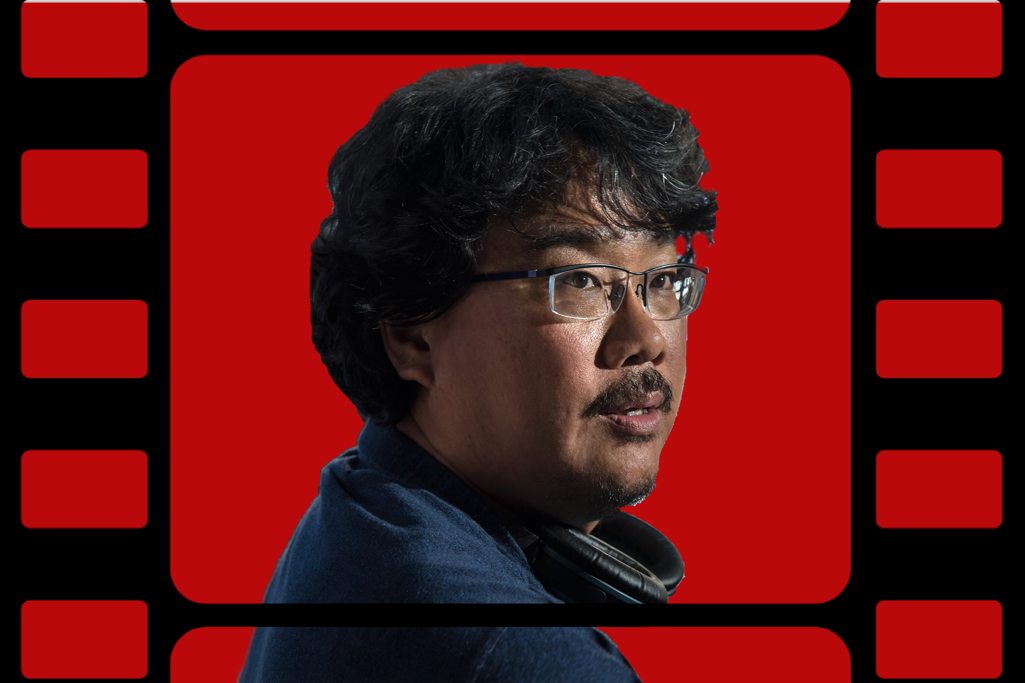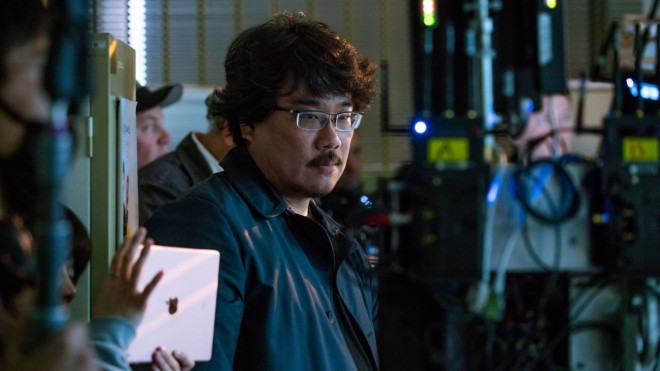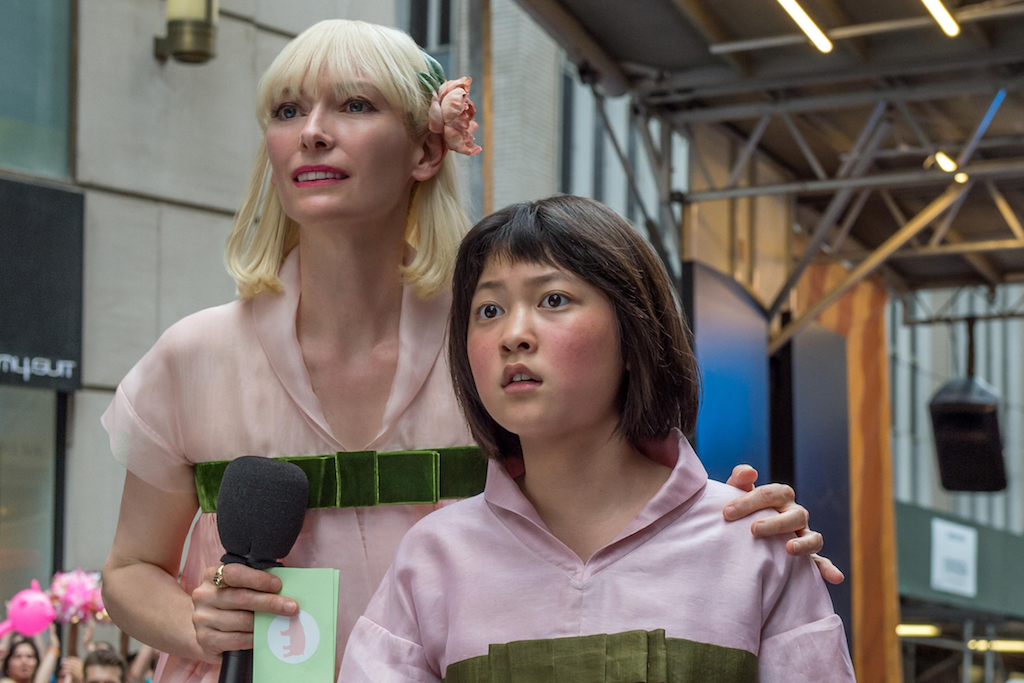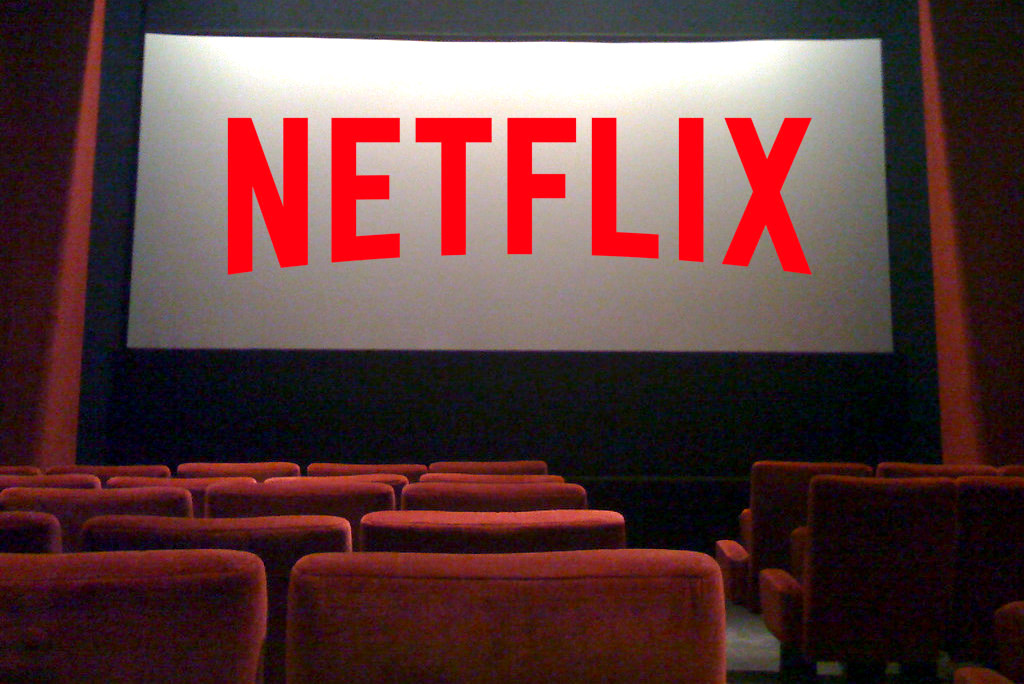How ‘Okja’ Director Bong Joon-Ho Is Forging The Future Of Film
"I think we all live in the same country, the cinema republic.”

Boos, jeers, and even whistling and cat-calling are common at the Cannes Film Festival, but rarely do they happen before a second of film has rolled. Bong Joon-Ho’s Okja (on Netflix now) was the exception at this year’s French Riviera festivities.
When Okja and one other Netflix-produced film — the Adam Sandler-starrer The Meyerowitz Stories — were announced as the first from the company to compete for the coveted top prize the response was celebratory. The famously enclaved festival was stepping into the 21st century! But these hopes were dampened by protests from French cinema owners who said the entries were in violation of France’s theatrical laws — there, a film cannot debut on a streaming service until 36 months after playing in theatres.
When revered Spanish director (and this year’s Cannes competition jury president) Pedro Almodovar said at the festival’s opening that the screen for films “should not be smaller than the chair on which you’re sitting”, the writing was on the wall. The pre-emptive booing two days later at the sight of the Netflix logo at Okja’s first press screening was indicative — the film has become a symbol of an industry in desperate need of change to hold onto fatigued and splintering audiences, but unwilling to do so.
By contrast, the logo was applauded warmly at the film’s Australian premiere — and only domestic theatrical showing — at the Sydney Film Festival the day before I met director Bong Joon-Ho.
The Man Behind The SuperPig
Okja is about a young girl named Mija (Ahn Seo-Hyun) and her titular best friend, a large SuperPig who is actually part of a long-game marketing campaign to rebrand the fictional multinational corporation Mirando as eco-friendly and sate the world’s hunger for meat. The film imagines that, in 2007, the company sent the reportedly environmentally sound SuperPigs to 26 countries to be raised using local farming methods — the largest and healthiest (and therefore tastiest) pig to be crowned the winner in ten years time.
This is unknown to Mija, however, who sets off on an adventure to New York to save Okja from death after the pig is taken from their home in the Korean mountains. Everyone, of course, wants to bring home their bit of the bacon, including sweetly polished and spun but venomous corporation head Lucy Mirando (Tilda Swinton), and washed-up gonzo kids’ television personality Dr Johnny (Jake Gyllenhaal, in long socks and sandals to boot).
What ensues is a film that only Director Bong could’ve imagined. It’s heart-pounding, funny, and confronting (while writing the film, he met a scientist who was researching developing genetically modified pigs like the SuperPigs) all at once. It’s also, according to Joon-Ho a film that could have only happened on Netflix.
“Big studios were also given the screenplay and they all liked it, but they were always unhappy about one or two aspects. They always asked whether we were really going to do the slaughterhouse scene,” Bong says through a translator. “However, Netflix were fully supportive of the budget and the script and every other aspect of the filmmaking itself. I wasn’t hesitant in choosing Netflix.”
“Netflix already said it’d be ok if Okja had an R-rating from the get-go, so as a filmmaker I’m very relieved at that. I believe that this aspect of Netflix is why master filmmakers such as Martin Scorsese will also be shooting a film this coming August called The Irishman with Netflix. Even master filmmakers such as himself are always thirsty for this creative freedom that Netflix is willing to provide.”
“When the people watch it I want them to be confused by it, contemplating it”.
Okja may have seen him be dubbed as “The New Spielberg” — the English language mainstream treating him as a discovery — but Director Bong has been a favourite on the international film stage for over 20 years, directing and writing films in South Korea and internationally that are refreshingly difficult to categorise. Melding drama, satire, slapstick, science fiction, action, horror, and even mystery, Director Bong’s films simply do not exist in one genre, but have instead created their own.
A Bong Joon-Ho film is indeed just that. His films, regardless of whether they’re about a mother seeking justice for her wrongly accused son (Mother) or a monster in Seoul’s Han river gradually eating people (The Host), are heartfelt and thoughtful and always satisfyingly about more than what’s on the surface. The Host, for instance, is about South Korea’s national identity after American occupation.
It’s a singularity that sees him be treated praised as a “total master” by his collaborators and critics alike.

“The Cinema Republic”
Whether exploring imperialism (The Host) or socially-conscious disguised capitalism (Okja), Director Bong is notably global in his casting and creation.
“I think we all live in the same country, the cinema republic,” he says. “I feel like nationality doesn’t really have a big say in it, because the essence of filmmaking in its core the same thing.”
“I didn’t have an intention of focusing on the global audience or pertaining to a global audience when I first made films like Okja or Snowpiercer,” he says. “For example for my next film, it’s really a microscopic look at a Korean family, so it’s really where the story leads me. Snowpiercer was the story about the very unique train and human survivors that remain there. So it’s a story about the human survivors, the human race.”
“If all the human survivors were all South Korean, North Korean, it would be very odd,” he says. “Okja is also a story about a multinational, global corporation. That’s the reason I shoot in many different places and the cast from many countries.”
“It’s interwoven into our everyday lives. You see a Starbucks or a McDonald’s in every street, I’m not saying they’re bad in any way whatsoever — even in this film, Mija is deep in the Korean mountains and then there’s Lucy in the heart of Manhattan as the CEO of a multinational company and they’re interwoven and connected in this very peculiar way. And I feel that’s very realistic in how vast the capitalistic connection has the world interwoven.”
“When the people watch it I want them to think ‘how does he categorise this movie’ and to be confused by it, contemplating it”.
The Future Is Now
Director Bong was too busy to truly engage with the controversy in Cannes, but has nothing but praise for Netflix, who took an unqualified chance that no one else would to bring his vision to the screen.
Asked whether he saw the controversy coming, he says through a translator that, “I am merely the creator. Even the day before the screening in Cannes itself, I was just too occupied checking the colour with the cinematographer Darius Khondji and checking little things such as the subtitles. So even when the controversy blew up I didn’t really have time to tend to it.”
“We just enjoyed it, all the controversies because everybody was talking about Okja, Okja, Okja!”
Netflix is far from a perfect company. In the wake of the Cannes controversy there was a storm of pieces as Netflix as a saviour, enemy whatever, including on this site. There are continued criticisms that their content gets buried amidst lack of promotion and is famously secretive about any kind of figures pertaining to usage, but it’s difficult to deny the importance of their backing of films like Okja in the current climate.
They have produced original movies before — including last month’s War Machine directed by Australian David Michôd and starring Brad Pitt, and acquired countless other independent films — but Okja is the first film that pushes a different vision for their capabilities, using their considerable clout to bring something distinctive and otherwise impossible to the mainstream.
It’s the perfect antidote for audiences feeling uninspired by Hollywood product and hungry for something different; a film that’s exciting and globally relevant. It is undeniable that Okja, a new frontier, is a positive — first and foremost, more people than ever before are going to see a Bong Joon-Ho film completely untouched, refreshing after his previous outing Snowpiercer didn’t even make it to UK theatres.
In the press kit, Swinton says that “cinema is a nation-free zone”. It’s a universality that Okja embodies, able to be seen all over the world simultaneously. Director Bong says that he hopes audiences take this sense of understanding away from the film.
“In the end scene, as the camera creeps into Mija holding her ear next to Okja’s mouth, Okja actually says something, she makes a noise, she’s vocal, although it’s never subtitled and we never know its meaning, at that moment I would like the audience to feel peaceful and satisfied, serene.”
Despite the presence of absurd personalities and premises, Okja feels familiar and immediate. “It’s not sci-fi,” Director Bong laughs. “This is not the future, this is now.” Okja, indeed, is now.
–
Ella Donald is a journalist and critic of all things pop culture and the arts from Brisbane. She has also written for outlets like Vanity Fair, The Guardian, SBS, Little White Lies, Brisbane Times, Kill Your Darlings, and bMag. Follow her on Twitter @_pingus.
–
Love film and TV? We’re holding our inaugural Video Junkee festival in July, a new annual event for lovers and creators of online video. Video Junkee is on July 28 & 29 at Carriageworks in Sydney, featuring keynotes, masterclasses, screenings, interviews and more. Tickets are on sale now.

